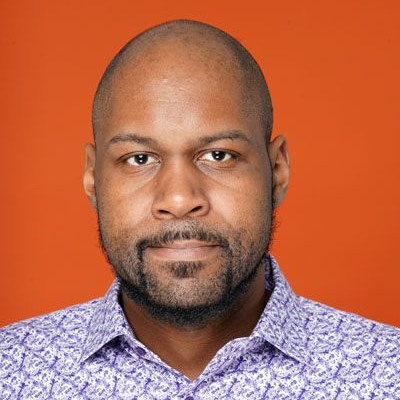Chris Uhl will welcome a sold-out event of around 300 partiers this New Year’s Eve for Sweet Spot, his queer-themed dance party at Metro Gallery in Station North.
In addition to a night of dancing to pop music personally spun by Uhl, there will be a cluster of libations. But Uhl won’t be imbibing — not even a champagne toast at midnight. He’s been sober since January.
“Cutting alcohol out of my life was one of the best decisions I ever made,” he said. “I struggled with drinking for years. I was self-medicating. My mental health was trashed, I struggled with depression, relationships with family and friends were terrible, my creativity and my career suffered. It’s hard to see it when you’re using, but drinking makes everything worse.”
Uhl is among what many say is a growing number of LGBTQ people who have decided to stop drinking. In addition to the physical challenges and mental strains that come with giving up alcohol, LGBTQ people, who already struggle with isolation and social ridicule, must also adjust to eliminating a behavior that is very much intertwined with socialization in their community.
“There seem to be some folks who can separate the alcohol from the socialization, and others who cannot. But everyone is on their own journey with their relationship to alcohol, and I respect that,” said Joseph W. Ritsch, 54, who identifies as non binary. Ritsch stopped drinking on Jan. 1, 2023.
“I just felt like it was too much,” said Ritsch, a Greenmount West resident. “I was going out to socialize approximately five nights a week. One drink leads to two, and then you realize it’s 2-for-1 doubles during happy hours, so those two drinks are actually four, and so on. I also wasn’t liking what the alcohol was doing to me physically: insomnia, magnifying my anxiety issues, weight gain.”
To say the LGBTQ community has a complicated relationship with alcohol is putting it lightly.
About one-fourth of the LGBTQ+ community has moderate alcohol dependency, compared to 5%-10% of the general population, according to AlcoholRehabGuide.org. Bisexual women have the highest rate of alcohol dependency, with 25% reporting heavy drinking.
For many members of the LGBTQ community, alcohol plays an integral role in socialization, with advocates pointing out that their community is often shut out from traditional faith-based support systems, or must remain closeted to use them. Gay bars and clubs have long been an essential space for members of the LGBTQ community, viewed as a refuge. They also have been a center for social justice movements, community outreach efforts and social events, such as hosting gay sports leagues and trivia events.
And many feel a pressure to drink at gay bars, where some bartenders have been known to pour heavier quantities of alcohol, known as the “gay pour.”
It is widely believed that the “gay pour” originated with LGBTQ people turning to bartenders — and drinks — to dull the rejection and discrimination they faced in society. Some viewed it as a form of therapy, given the distrust many felt toward the medical community based on years of discrimination and rejection.
It was only 50 years ago that psychiatrists declassified homosexuality as a disorder, and psychoanalysts did the same nearly two decades later. In 2019, the American Psychoanalytic Association apologized for previously treating homosexuality as a mental illness, acknowledging that it had contributed to discrimination and trauma for the LGBTQ community.
Despite the reckoning, the contentious relationship between the LGBTQ community and the medical industry persists. According to American Addiction Centers, 21% of transgender patients and 10% of patients who identify as gay, lesbian or bisexual have experienced harsh or abusive language, and 27% of transgender patients have been refused health care from services.
“So much of our coming out is gathering at gay bars — and for a lot of us, it’s all we know,” said Uhl, 37. “We created Sweet Spot as a place for queers to meet, dance and let go. I’ve found that if the music’s good and the vibes are right, that’s all you need.”
Uhl, a Mount Vernon resident, is quick to say that his dance party is not intended to discourage guests from drinking.
“Do I need to force everyone into sobriety? No. I’m many things, but judgmental is not one of them. You have the option to not drink if you want,” he said, adding that he’s open to offering sober events in the future. “If there was a desire to have a fun, unique sober dance party, we would definitely take that on. I don’t know if it needs to be me. It could be anybody.”
Adam Bencomo, a bartender at Leon’s, which touts itself as one of the nation’s oldest gay bars, has noticed a shift toward sobriety.
“Some people will come out drinking soda or juice. Others will just disappear,” he said. “It started over the summer. I think everyone has different reasons — some people have health reasons, and some people hit rock bottom. Ultimately, I don’t think there is one reason why.”
Bencomo said he is offering at least one non-alcoholic mocktail at the Mount Vernon bar to meet the growing number of sober customers who want to continue going to bars because of the social benefits they find there.
“I’m hoping to have one for New Year’s Eve,” he said.

Kaya Vision, 29, first noticed an uptick in sobriety and an overall reduction in alcohol consumption among the LGBTQ community after the COVID pandemic.
“During the pandemic, when everyone was sitting at home, drinking was through the roof. But when they got back into the workforce, it was time to shape up,” said Vision, the food and beverage manager at the Sagamore Pendry Baltimore. “Instead of getting four drinks, it’s two.”
Vision, who identities as queer and non-binary, also has observed an increase in sobriety among LGBTQ bartenders despite their having easy access to alcohol. Vision attributes this to a number of mental health and wellness initiatives geared towards the bartending community.

Rebekah Dorff, a 30-year-old bartender at Wet City in Mount Vernon, has seen a 10% decrease in her LGBTQ customers as more stop drinking. She also thinks that New Year’s resolutions and “Dry January” will cause a drop in sales, but not so significant as to cause her to panic.
“The place I work has food and mocktails to make up for those numbers,” she explained.
Vision does worry that a significant pendulum shift could have disastrous repercussions for the food and beverage industry as well as for queer spaces like bars and clubs, which he considers an important part of the queer community.
“Those bars rely solely on alcohol,” Vison said. “The lowering of the demand creates a lack of space. I am [worried]. But my hope is that people start adapting and recognizing that it’s not all about the drinking and that we still need a social space to get away.”
Uhl said he embraced sobriety last Jan. 9 in New York City, a turning point.
“I woke up [in a hotel room] after another night of too much partying — waking up with another hangover and wanting to die. I decided that was enough. I chose to get sober and have been since,” he said.
Although this has been a trying year for Uhl, he said that sobriety has given him “new life.”
Sobriety “gave me the opportunity to reconnect with friends (and to make new ones) and reconnect with family, to start a new career, and to really focus on my health,” Ritsch added. “And my creativity is back. I’m learning, I’m growing and experiencing joy.”
Ritsch said giving up alcohol proved “easier” than expected.
“I realized rather quickly that I could continue my social life as it had been without alcohol being a part of it,” said Ritsch, who still goes to gay bars, but now chooses alcohol-free soda water drinks instead of mixed drinks. “My friends and social circles have been very supportive. And many of my friends are drinkers. There has been no judgement.”
Dorff, who is bisexual, said she is encouraged by seeing her queer sober friends who continue to go out.
“The gays I know that are sober are still out enjoying soda water with lime and shaking their asses to the same bops. I myself will still be sober out there making a fool of myself,” she said. “Not everyone can handle being around alcohol while staying sober, but for me, my community is more important than the drinking, and that’s what I’m there for.”
Veteran drag queen Stacey Antoine, whose stage name is Karmella, has noticed a number of bar patrons stop or cut back on drinking in recent years. But he worries that some might be replacing one vice with another.
“You can quit alcohol and you can find your sobriety from alcohol, and I support being sober,” the 37-year-old Station North resident said.
Antoine hosts recurring karaoke nights and movie nights at gay establishments. “Ultimately, everybody has their vices. How they chose to use them is only their concern.”
Uhl said he’s refocused on building relationships, his work and other activities. To celebrate his 100 days of sobriety, he purchased a bicycle. He said he now rides it most places.
“It’s just been a much more positive experience. I’m paying attention to every detail. I don’t miss it. I don’t need it,” Uhl said. “You’re creating a whole new life.”





Comments
Welcome to The Banner's subscriber-only commenting community. Please review our community guidelines.